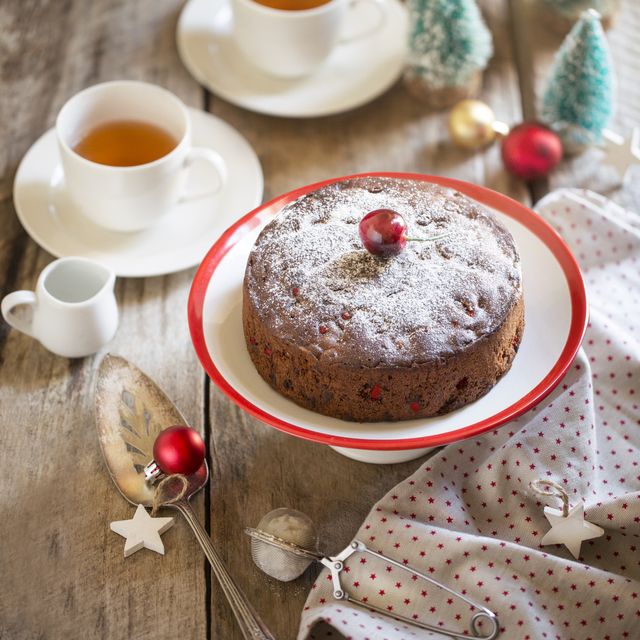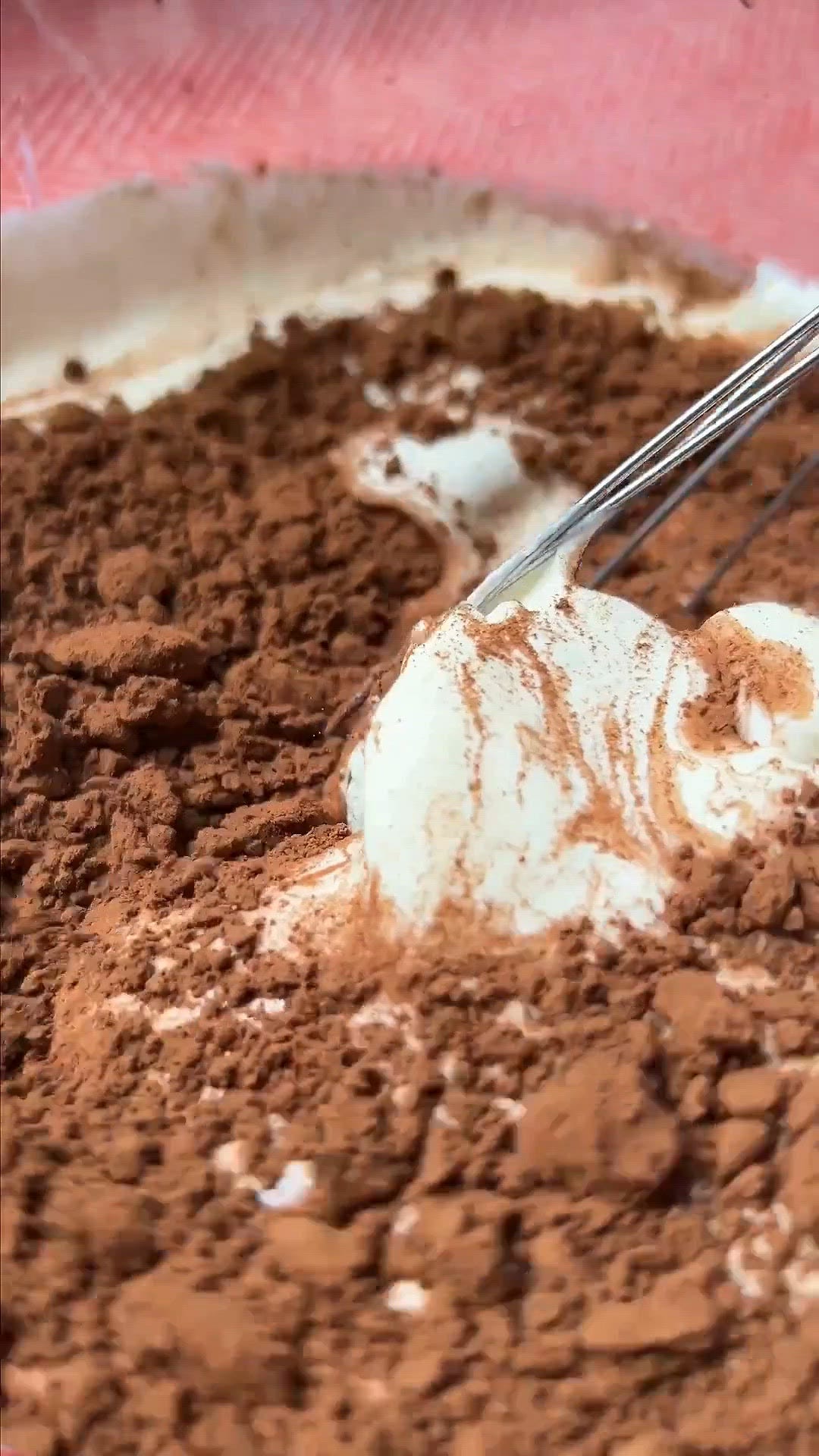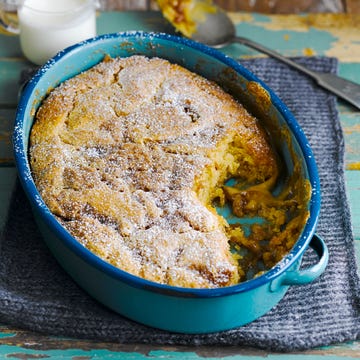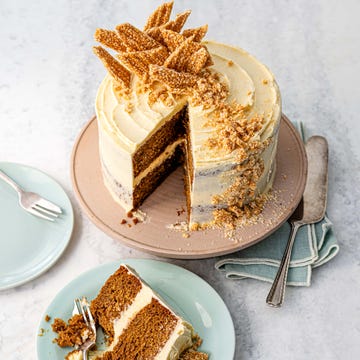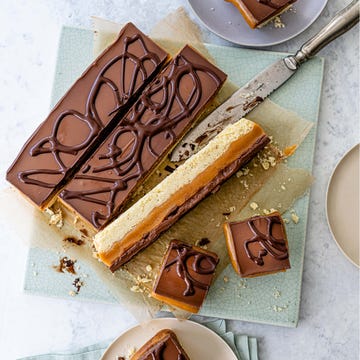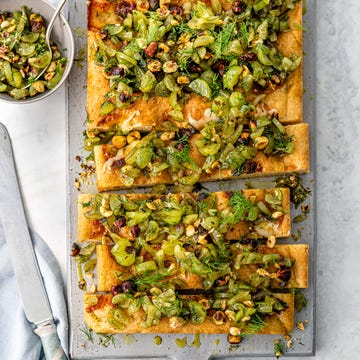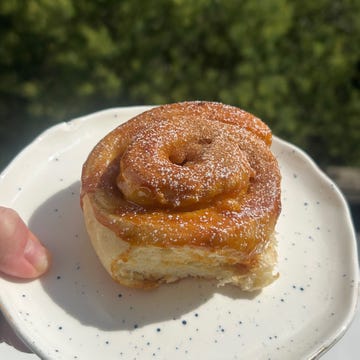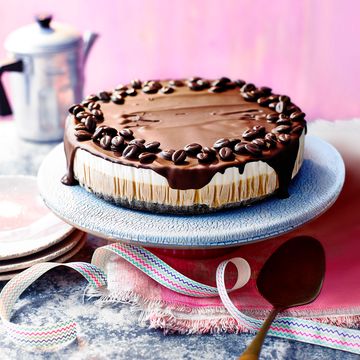This Christmas cake recipe is an absolute classic. Soak the fruits overnight before you start making the cake and it'll result in a plump and juicy filling. Hazelnut liqueur adds a wonderfully boozy and nutty twist to this classic Christmas treat - one that the whole family will love.
Before you start baking here's everything you need to know about making a Christmas cake.
What is the difference between a fruit cake and a Christmas cake?
A Christmas cake typically has way more dried fruit in it, compared to a regular fruit cake, and is typically topped with a layer of marzipan and icing sugar.
How far in advance should you make a Christmas cake?
Traditionally, Christmas cakes, along with Christmas puddings, are made on Stir-Up Sunday (which falls on 26 November this year), about a month in advance, to allow the cakes to mature and develop into a deeply rich and fragrant pudding.
What keeps Christmas cake moist?
The key to a winning Christmas cake, and to keep it moist is using plump, juicy fruit. If you’re making via the traditional method, the dried fruit needs to be soaked in alcohol or fruit juice beforehand. An overnight steeping is great if you have time, but the easiest and speediest way to do it is to heat the fruit and liquid together – either in a pan or a microwave – then let it cool before you use it.
Don’t cook your fruitcake at too high a temperature – there’s a lot of sugar in the dried fruit, which will make it burn and taste bitter. Low and slow allows the batter to bake without compromising the fruit.
If you like a rich, complex flavour, opt for a recipe that uses treacle and/or dark brown sugar. Lighter sugar and golden syrup will give a sweeter flavour.
What spices and flavouring can I use?
You can’t go wrong with cinnamon and mixed spice, but nutmeg, allspice, ginger and cloves can add different depths and dimensions. Woody herbs such as rosemary and more intense flavours like star anise and fennel seeds give a refreshing new edge for those who are looking for something less run-of-the-mill.
If you’re not keen on spice, it’s still better to add a small bit for a balanced flavour, rather than leave it out altogether.
What alcohol do you put in Christmas cake?
In terms of alcohol, you can get creative too – just try to substitute within the same family.
Spirits, liqueurs and fortified wines all have differing alcohol and sugar contents, so trying to substitute rum (a spirit) with amaretto (a liqueur) won’t work so well. Rum, brandy and whisky can be used interchangeably, or if you’ve got a sweeter liqueur in your recipe, sub for amaretto, Aperol or Frangelico. With their dried fruit flavours, Port, sherry, madeira and marsala are very complementary to the flavours of Christmas cake.
How long can a Christmas cake last?
Wrapped properly, a fruit cake can last for months (sometimes years!). Keep the cake in its parchment paper, wrap in a couple of layers of clingfilm, then cover the whole thing tightly with foil. Store in a cool dark place, at room temperature.
What is feeding the cake?
Feeding the Christmas cake with alcohol makes it delightfully squidgy, can add extra flavour. To feed a Christmas cake, after a couple of weeks maturing, unwrap the cake and use a cocktail stick to poke small holes in the cake, then evenly pour over a spoonful of your chosen booze. Re-wrap the cake and repeat the process once every week, to two weeks.
For more Christmas cake recipes, take a look at our gallery for lots of variations on the classic, or why not try a Christmas pudding recipe?
